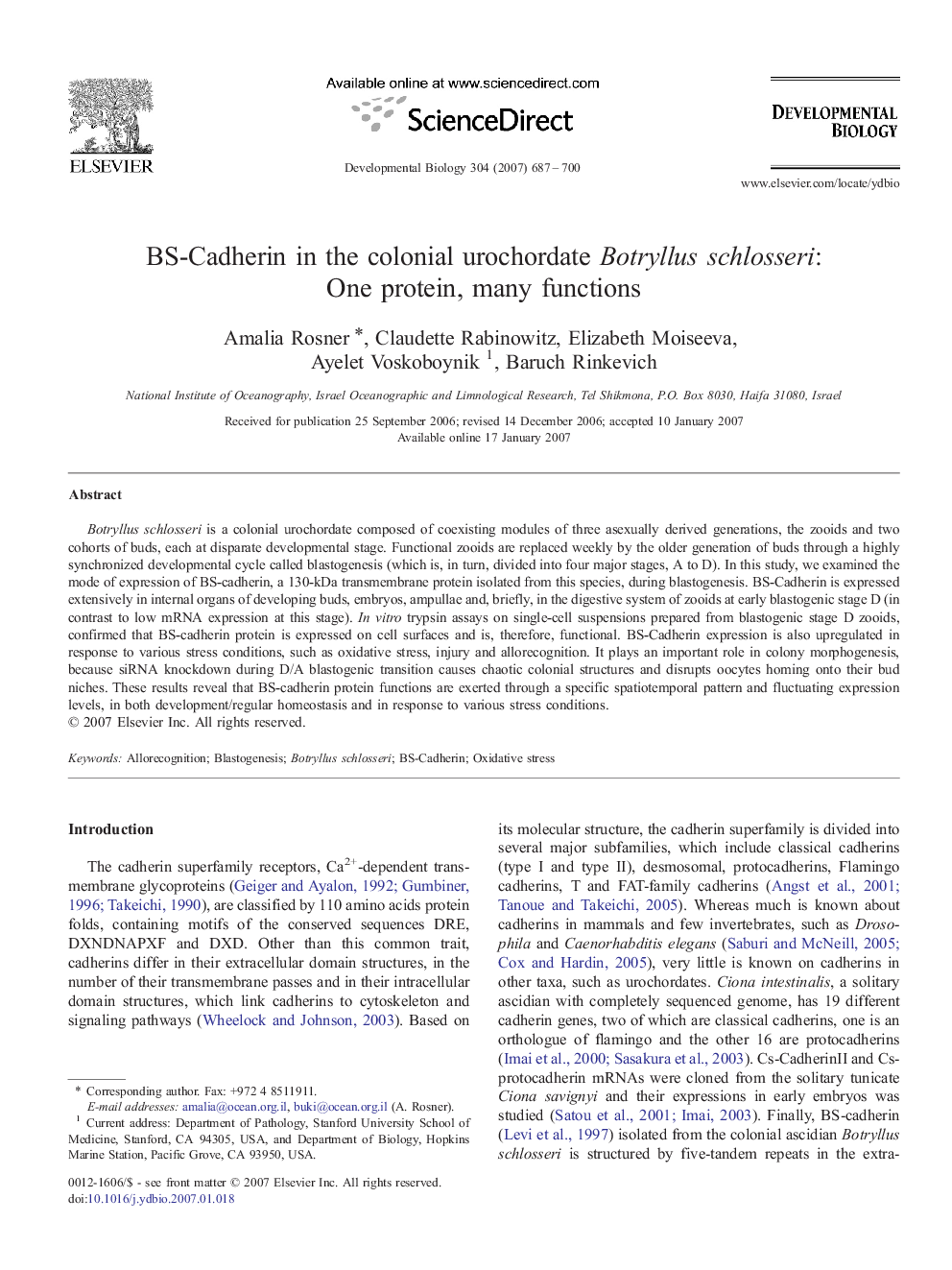| Article ID | Journal | Published Year | Pages | File Type |
|---|---|---|---|---|
| 2175443 | Developmental Biology | 2007 | 14 Pages |
Botryllus schlosseri is a colonial urochordate composed of coexisting modules of three asexually derived generations, the zooids and two cohorts of buds, each at disparate developmental stage. Functional zooids are replaced weekly by the older generation of buds through a highly synchronized developmental cycle called blastogenesis (which is, in turn, divided into four major stages, A to D). In this study, we examined the mode of expression of BS-cadherin, a 130-kDa transmembrane protein isolated from this species, during blastogenesis. BS-Cadherin is expressed extensively in internal organs of developing buds, embryos, ampullae and, briefly, in the digestive system of zooids at early blastogenic stage D (in contrast to low mRNA expression at this stage). In vitro trypsin assays on single-cell suspensions prepared from blastogenic stage D zooids, confirmed that BS-cadherin protein is expressed on cell surfaces and is, therefore, functional. BS-Cadherin expression is also upregulated in response to various stress conditions, such as oxidative stress, injury and allorecognition. It plays an important role in colony morphogenesis, because siRNA knockdown during D/A blastogenic transition causes chaotic colonial structures and disrupts oocytes homing onto their bud niches. These results reveal that BS-cadherin protein functions are exerted through a specific spatiotemporal pattern and fluctuating expression levels, in both development/regular homeostasis and in response to various stress conditions.
